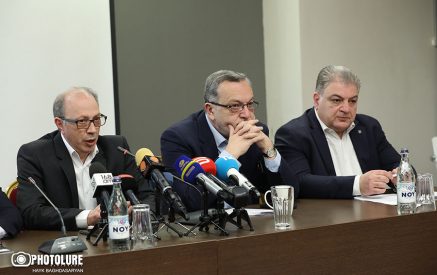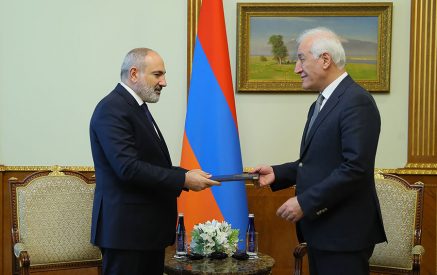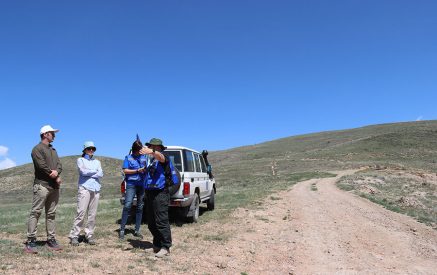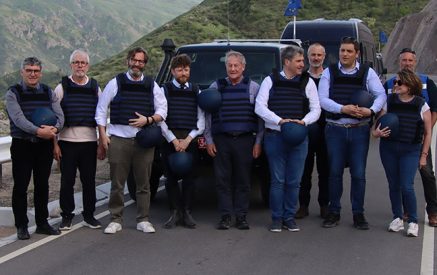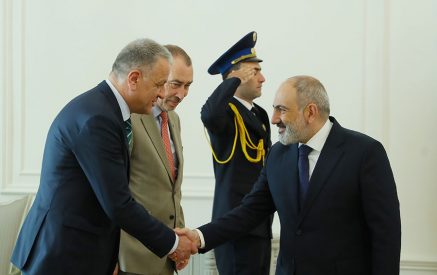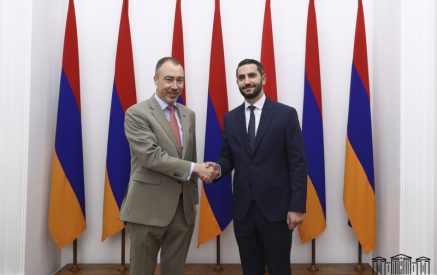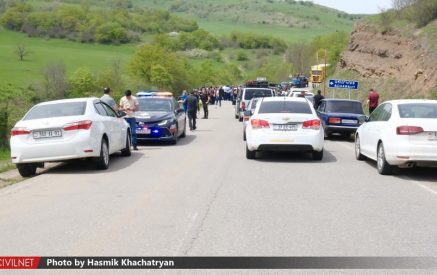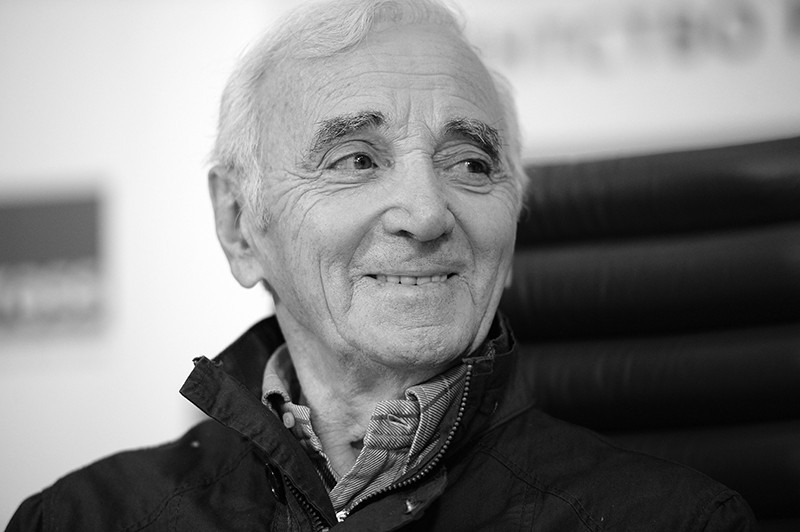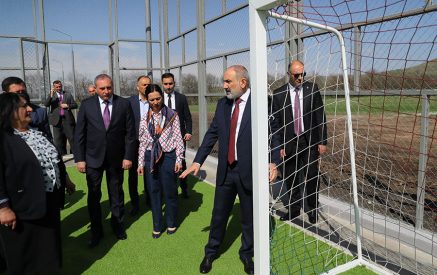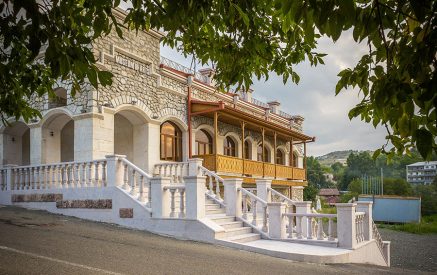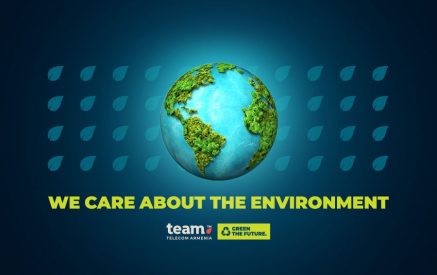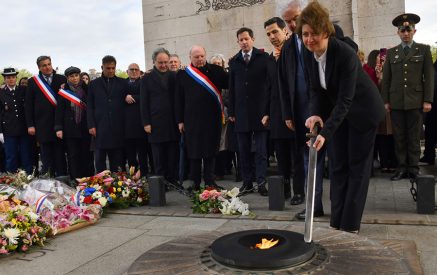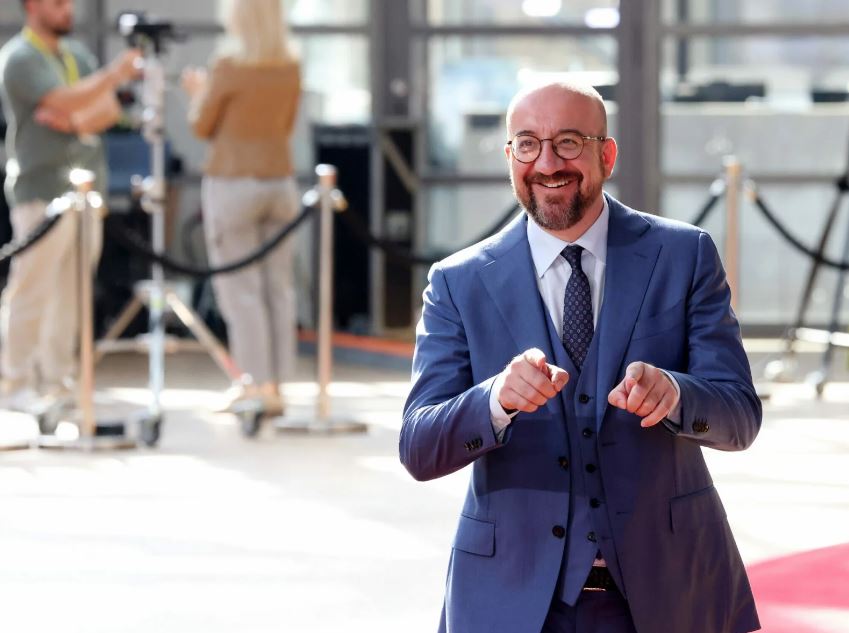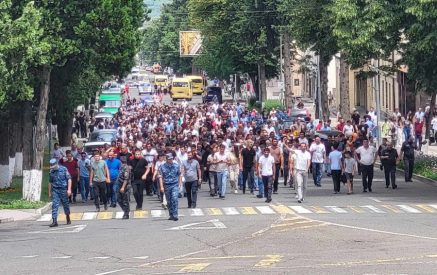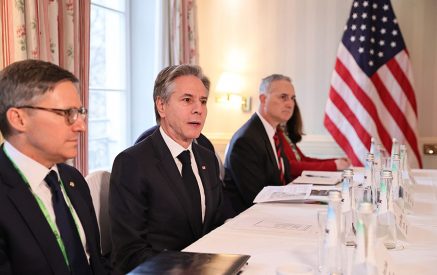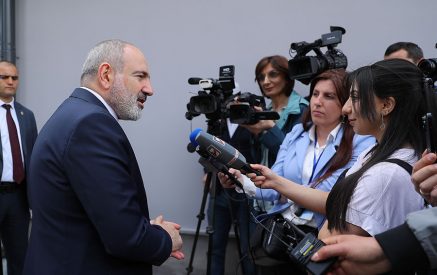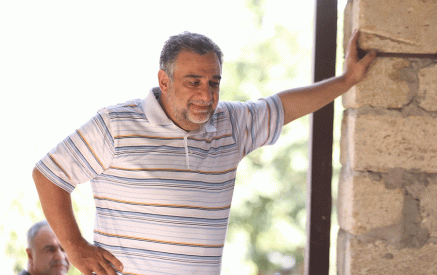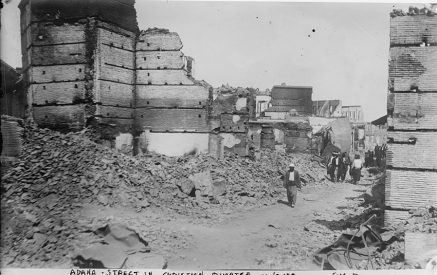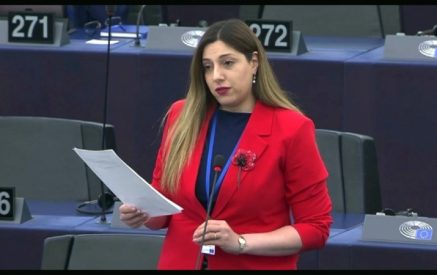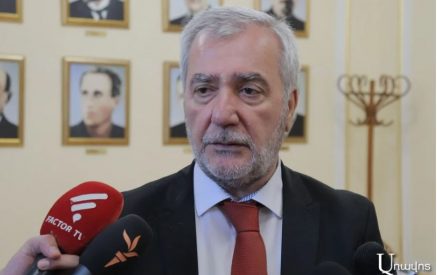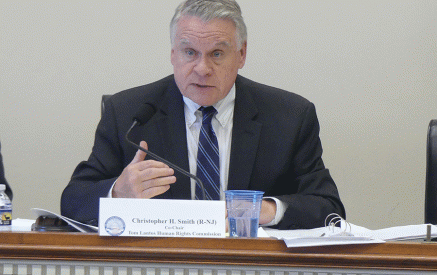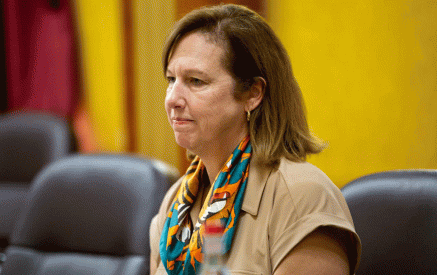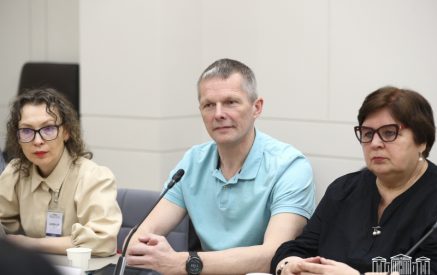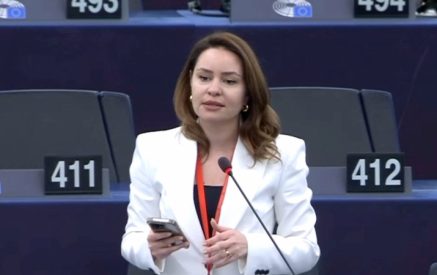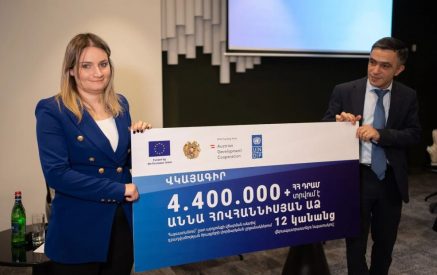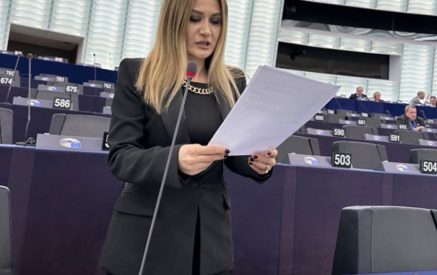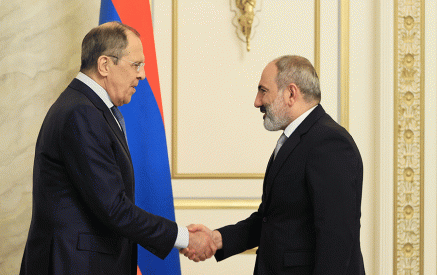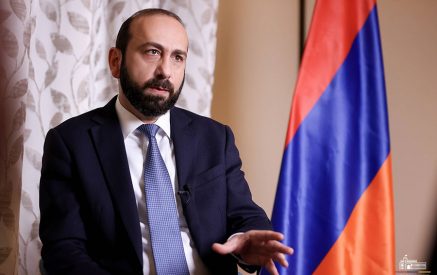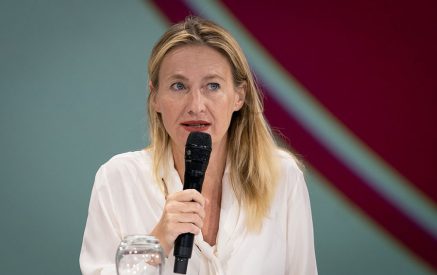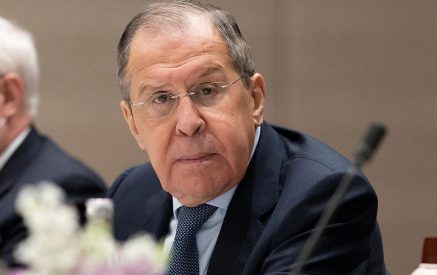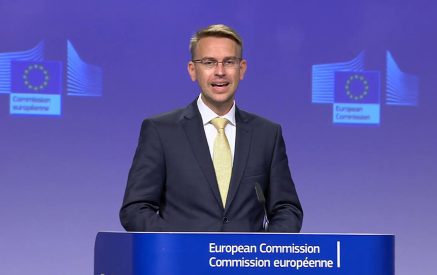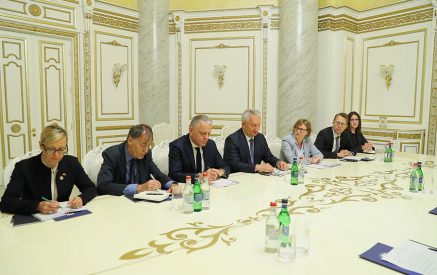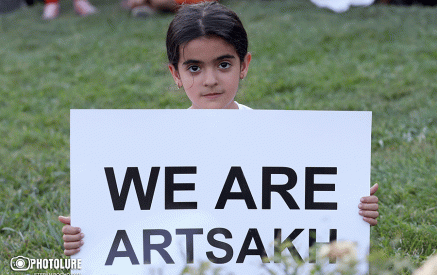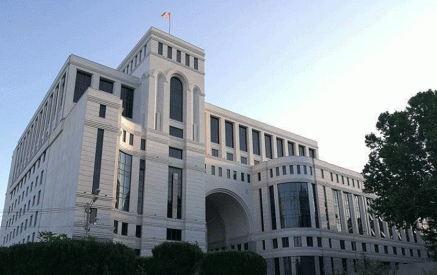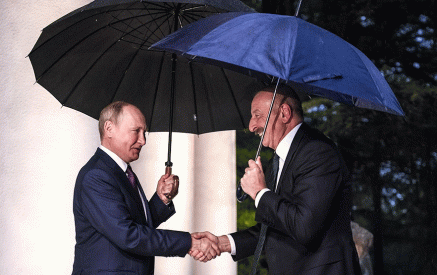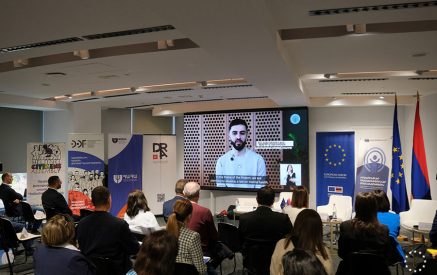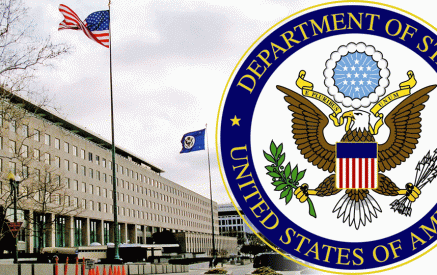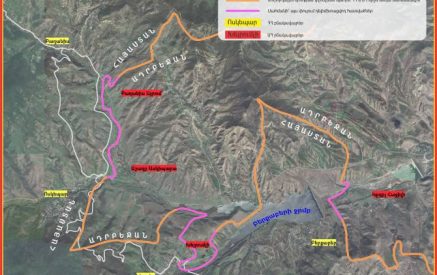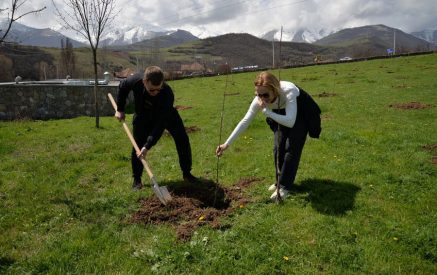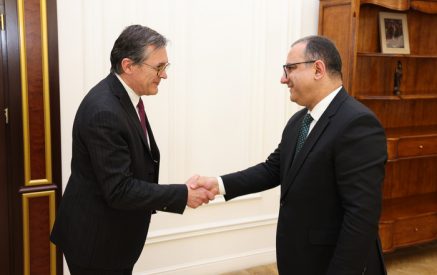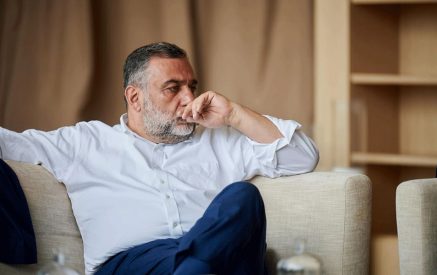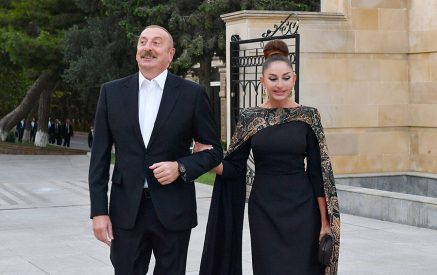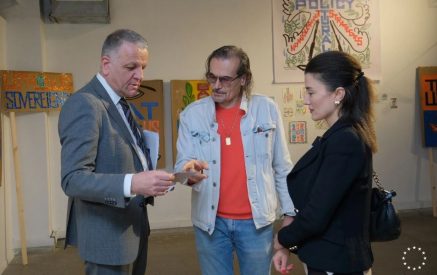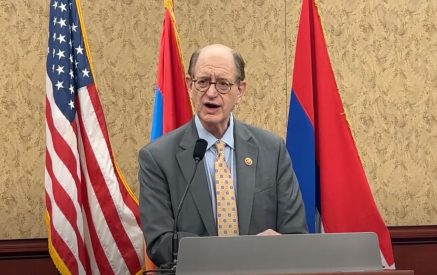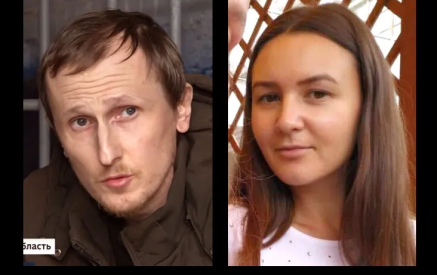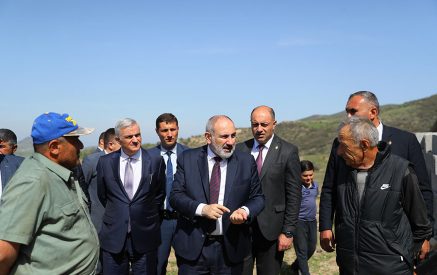Hovig Etyemezian is only 35, but he has witnessed suffering most people couldn’t imagine in their worst nightmares.
“This is my tenth operation with the U.N. High Commissioner for Refugees,” he says, without a hint of weariness in his voice. If anything, Etyemezian exudes unfaltering idealism and optimism. “What I have been struck by is the resilience of people,” he says. “We, as Armenians, have shown that in our history.”
Etyemezian, who will headline this Saturday’s INNOVATE ARMENIA festival, currently leads the UN refugee agency’s Mosul office, where 950,000 internally displaced persons (IDPs) look to his team and dozens of partner humanitarian groups for their basic needs.
UNHCR runs 13 IDP camps around Mosul, with more under construction. Thousands of displaced Iraqis continue to stream into the city, which was liberated from ISIS control in July 2017. New arrivals receive a tent and emergency supplies—consisting of quilts, mattresses, kitchen sets, a fuel can and a solar lantern. Partner agencies provide food, water and other essential services. The goal, Etyemezian says, it to help displaced Iraqis return to “a dignified life in a sustainable way.”
The retreat of ISIS doesn’t mean those returning can pick up where they left off in 2014. Shelter is in short supply. A quarter of Mosul’s residential neighborhoods were destroyed or heavily damaged during months of fighting and years of occupation. Mines and unexploded ordnance still pose grave danger, especially to children.
The emotional toll on those who never left Mosul presents another set of challenges for aid workers. “The level of trauma is huge,” says Etyemezian, “and we have to deal with it. It’s very worrisome to me that ISIS spread its brutal teachings through Mosul schools. Children as young as you can imagine were taught how to kill people, how to decapitate people. A lot of work needs to be done to remedy this.”
Each day, Etyemezian rides to work in an armored vehicle with a military escort. “We are not yet allowed to sleep in Mosul for security reasons,” he says, explaining why he commutes 50 miles from Erbil.
Conflict is nothing new to Etyemezian. Born and raised in Beirut, his childhood was spent against the backdrop of the Lebanese civil war and Syrian occupation. With deep roots in the capital’s Armenian community, he studied political science at Haigazian University before attending the UN’s University of Peace in Costa Rica. He returned home in 2005, just as Lebanon again plunged into war, this time between Hezbollah and Israel.
UN emergency team postings have taken Etyemezian to DR Congo, Algeria, Tunisia, Mauritania, Jordan and, most recently, Iraq.
In his 1:15 pm talk at INNOVATE ARMENIA, Etyemezian will reflect on his career as a humanitarian aid worker and suggest ways that Angelinos can help.
Q&A with Hovig Etyemezian, Head of UNHCR Mosul Office
Why is it worth your while to leave your lifesaving work in Mosul to speak at a festival in Los Angeles to people whose lives aren’t in danger?
Because I want people to learn more about humanitarian work, and how they can contribute to that work. Human suffering is mostly human made. Whether it’s happening in Los Angeles or in Mosul, it’s something we can prevent if we are aware, if we care.”
How can ordinary people in Los Angeles help?
There are a number of ways. One is to do humanitarian work themselves. Another is to support it. If you go to UNHCR.org, you can see what your dollar contribution will buy in services for refugees. Another is to work in one’s own society. Every human settlement has its problems. The problems of homeless people in New York—I don’t see them as drastically different than what people face during war.
Is the situation in Mosul worse than what you’ve seen elsewhere?
Every situation is different. ISIS is a very extreme manifestation of violence and criminality. But wherever you have oppression, discrimination or war, you have atrocities. In today’s world, we are able to capture them better. Information circulates much faster because of social media. But there are many forgotten conflicts in the world, where equally brutal things are happening to people.
You were raised in Beirut but have lived all over the world. What do you consider your nationality?
It’s a good question. I have a Lebanese passport and an Armenian one. Part of me is a citizen of the world. I don’t think those are contradictory. I don’t have any nationalistic feelings. Part of me belongs to where I live and where I have visited. I lived in Costa Rica for two years: part of me feels Costa Rican. I lived in Tunisia for two years: part of me feels Tunisian. People make fun of me because my Arabic accent is very mixed.
What languages do you speak?
Armenian is my mother tongue, and I went to Armenian school in Lebanon, where we did the French baccalaureate—so I studied Armenian, Arabic, French, and English in school. Later I learned Spanish in Costa Rica.
What is your Armenian diaspora story?
Both sides of my family fled the genocide. My grandparents were Anatolian refugees in Aleppo. That’s where my parents were born. My father later moved to Germany to avoid forced conscription in the Syrian army. My mother went to study in England to be a nurse midwife. They met up in Lebanon, and I was born there.
How do you respond to Americans and Europeans who say: “I don’t know who is an extremist and who is a refugee, and this makes me fearful. I’m reluctant to invite these people into my homeland.”
The idea that “This is my country, this is how I do things” is a problem in itself. If you look at North America and Europe, these places were formed by movements of populations. No one can claim to be the rightful owner of these lands. Second, there are good and bad people across the world. Most people are harmless and good. A few can be harmful, but they cut across ethnicities and races. We humans have a tendency to stereotype. I think people should believe that people are innocent until proven guilty, that most people are victims of violence and not perpetrators, and that radicalism exists across ethnicities and races.

